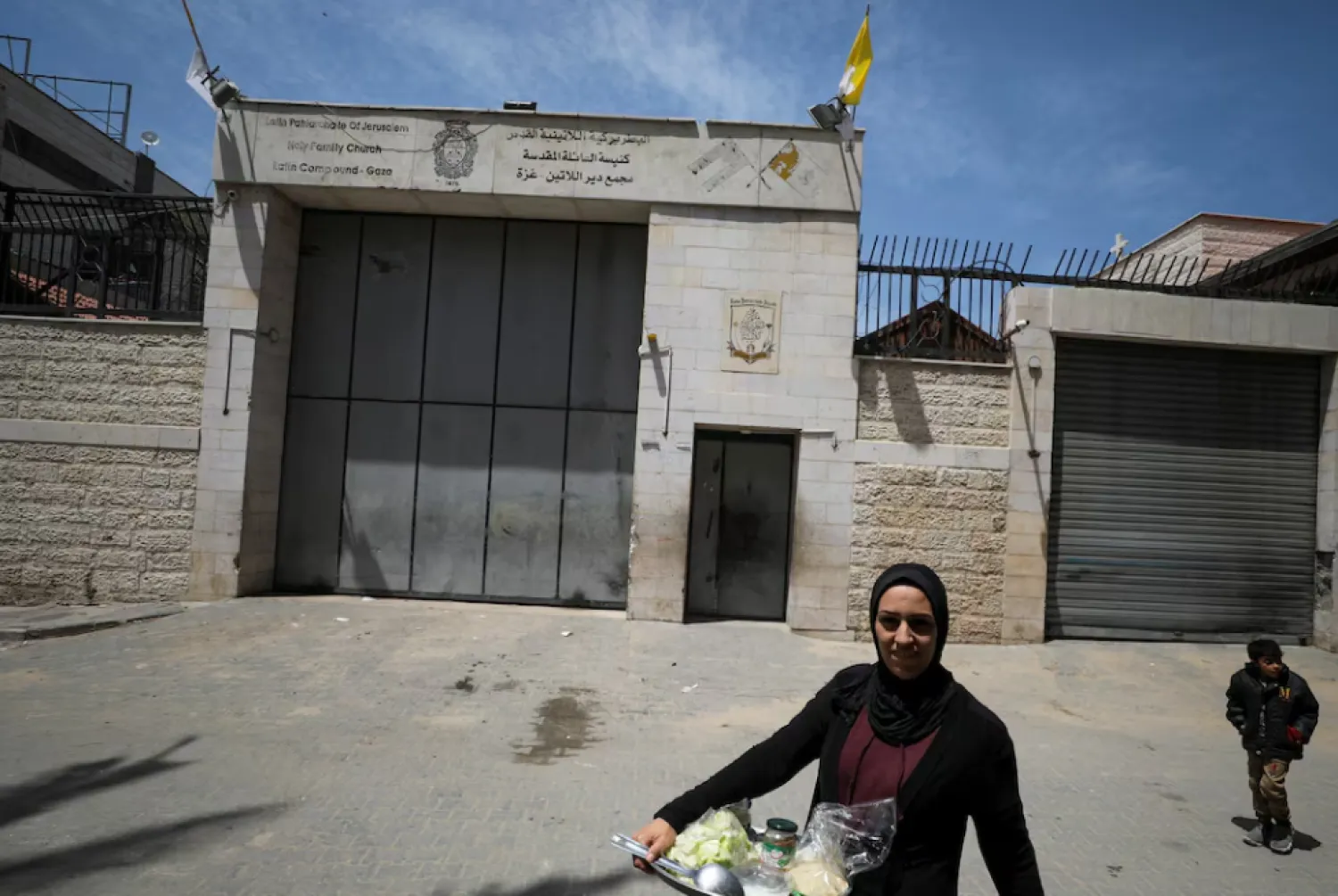Members of Gaza's tiny Christian community said they were "heartbroken" on Monday at the death of Pope Francis, who campaigned for peace for the devastated enclave and spoke to them on the phone every evening throughout the war.
Across the wider Middle East, Palestinian, Lebanese and Syrian Christians, both Catholic and Orthodox, praised Francis' constant engagement with them as a source of solace at a time when their communities faced wars, disasters, hardship and persecution.
"We lost a saint who taught us every day how to be brave, how to keep patient and stay strong. We lost a man who fought every day in every direction to protect this small herd of his," George Antone, 44, head of the emergency committee at the Holy Family Church in Gaza, told Reuters.
Francis called the church hours after the war in Gaza began in October 2023, Antone said, the start of what the Vatican News Service would describe as a nightly routine throughout the war. He would make sure to speak not only to the priest but to everyone else in the room, Antone said.
"We are heartbroken because of the death of Pope Francis, but we know that he is leaving behind a church that cares for us and that knows us by name - every single one of us," Antone said, referring to the Christians of Gaza who number in the hundreds.
"He used to tell each one: I am with you, don't be afraid."
Francis phoned a final time on Saturday night, the pastor of the Holy Family parish, Rev. Gabriel Romanelli, told the Vatican News Service.
"He said he was praying for us, he blessed us, and he thanked us for our prayers," Romanelli said.
The next day, in his last public statement on Easter, Francis appealed for peace in Gaza, telling the warring parties to "call a ceasefire, release the hostages and come to the aid of a starving people that aspires to a future of peace".
'PEACE IN THIS LAND'
At the Church of the Holy Sepulchre in Jerusalem, on the site where many Christians believe Jesus was crucified, buried and resurrected, the superior of the Latin community, Father Stephane Milovitch, said Francis had stood for peace.
"We wish that peace will finally come very soon in this land and we wish the next pope will be able to help to have peace in Jerusalem and in all the world," he said.
In Lebanon, where a war between Israel and Hezbollah caused widespread casualties and extensive damage last year, sending millions from their homes, members of the Catholic Maronite community spoke of Francis' frequent mentions of their plight.
"He's a saint for us because he carried Lebanon and the Middle East in his heart, especially in the last period of war," said a priest in the southern Lebanese town of Rmeish, which was badly damaged during Israel's military campaign last year.
"We always felt he was very involved and he mobilized all the Catholic institutions and funds to help Lebanon throughout the crises that we went through," said Marie-Jo Dib, who works at a social foundation in Lebanon.
"He was a rebel and I really pray that the next pope will be like him," she added.
Francis made repeated trips to the Middle East, including to Iraq in 2021 where he learned that two suicide bombers had attempted to assassinate him in Mosul, a once cosmopolitan city where the ISIS terror group proclaimed a so-called caliphate from 2014-17.
He visited the ruins of four destroyed churches there and launched an appeal for peace.
In Syria, Archbishop Antiba Nicolas said he was holding mass at the historic Damascus Zaitoun church when he was handed a slip of paper with the news.
"He used to say 'dearest Syria' every time he spoke of Syria. He called on all international organisations to support Syria, the Christian presence and the church in Syria during the crisis in the past years," Nicolas said.









